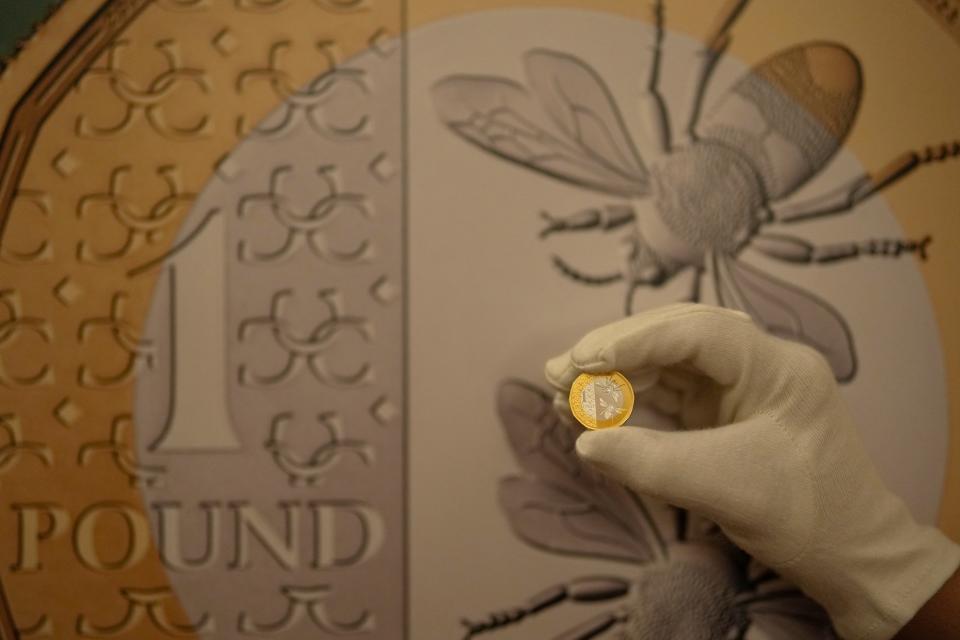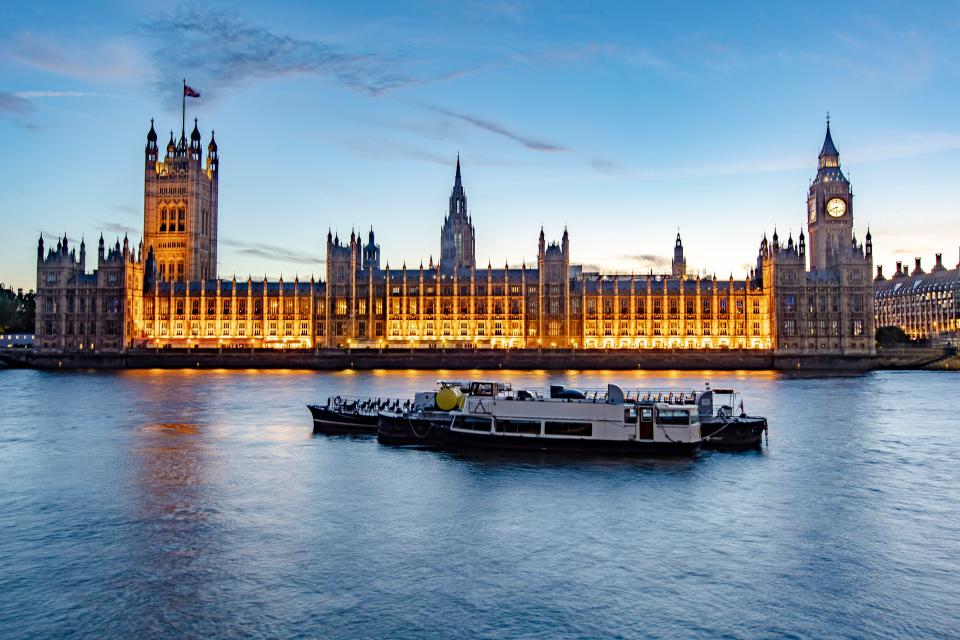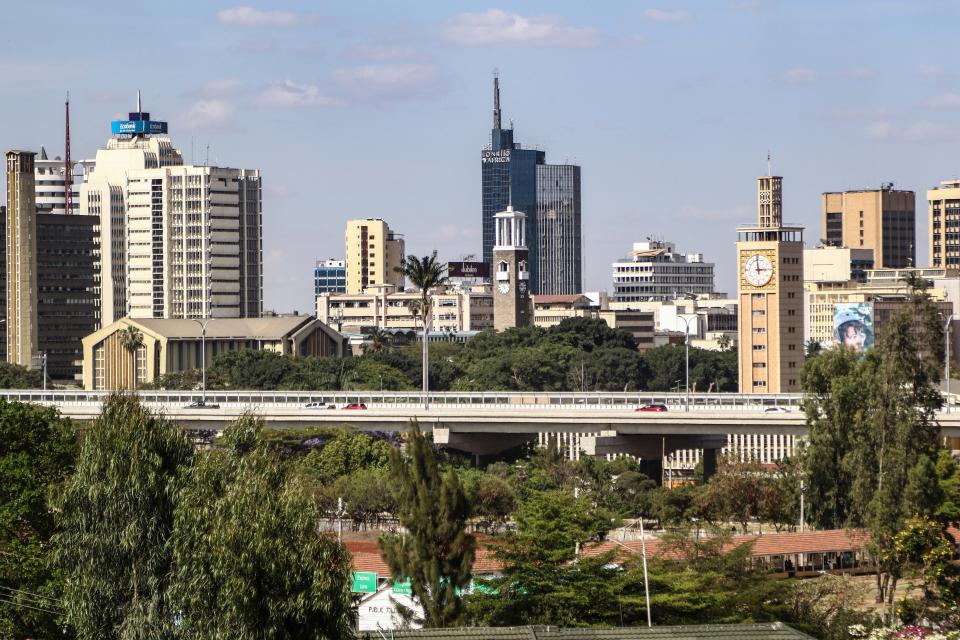Iowa insurance 'rescuer' associated with a tycoon who's left a trail of global troubles
Second of three parts
Robert Ferran learned about Keith David Beekmeyer's ties to Dai Ichi Kyoto early in their relationship.
The two met around 1997, as Beekmeyer and two business partners wanted to purchase companies through Litchfield Continental, a venture firm they started in the British Virgin Islands. Ferran, a London investment banker at the time, said Beekmeyer was the face of the group.
Ferran liked him. He said Beekmeyer was a fast talker with a cockney accent, a remnant of his working class, East Ender roots. Beekmeyer was known in certain circles for his ties to Dai Ichi Kyoto Reinsurance, the target of a reinsurance fraud investigation that resulted in eight indictments.
But Ferran believed Beekmeyer, who was not among those charged, though he ran the firm for about six months, was a “lackey” for the scheme’s architects.
“He didn’t strike me as highly educated,” Ferran said. "He's not the kind of guy you would expect to represent blue-chip, major reinsurers based in legitimate insurance jurisdictions."
Litchfield Continental acquired a Romanian drug manufacturer in the summer of 1997, and Ferran agreed to stay on board to run the business. Next, Beekmeyer targeted Britten-Norman, an airplane manufacturer in the Isle of Wight.

The company makes island hoppers, small planes that can use short landing strips. United Kingdom police departments have used the planes for coastal surveillance.
Kenn Heeley, who also wanted to buy Britten-Norman, said the company had grown “asset rich and cash poor” over time. He said he and Beekmeyer met in 1997, as Britten-Norman’s owner was looking to unload the business.
Heeley said he signed an agreement with Beekmeyer, who declined an interview request from the Des Moines Register. Heeley would create a business plan and serve as Britten-Norman's managing director, while Beekmeyer would finance the acquisition. Litchfield would invest in better marketing and new products for the airplane manufacturer. But after Heeley reviewed the company’s books and gave Beekmeyer the plan, Heeley said Beekmeyer instead appointed a different director.
“What a dirty rotter,” Heeley said in an email.
To settle the dispute, Heeley said, Beekmeyer paid him 10,000 pounds and gave him a $250,000 convertible note ― a promise of payment from a publicly traded shell company in Pennsylvania. The promise was worthless, Heeley said.
The shell company in question, Global Spill Management, had been an environmental cleanup business before its owners sold its assets to pay off debt in the mid-1990s. In 1998, with no business left, Global Spill’s owners reached a deal with Litchfield.
In an agreement known as a reverse merger, Global Spill would pay Litchfield $6.4 million over several years. In exchange, Litchfield would merge its businesses into Global Spill, according to the agreement. Global Spill owners would earn money on the future profits of Litchfield businesses.
Global Spill, which renamed itself Biofarm, also agreed to let Litchfield appoint board members and company executives. Beekmeyer became board chair.
Among the listed board members was Herbert Marcus III, the Dallas-based heir to the Neiman Marcus fortune. Marcus, however, told the Register this year that he had never heard of Beekmeyer or Biofarm.
“I had nothing to do with them,” he said.
After buying spree, some of Beekmeyer's businesses begin to unravel
After the Global Spill merger, Beekmeyer went on a buying spree, investing in a Canadian ginseng manufacturer and a London insurance broker. Britten-Norman reached deals to sell planes to Chinese Northern Airlines and the Hampshire Constabulary, receiving $1.8 million in down payments.
“B is an extremely bright entrepreneurial character, although his delivery lends itself to somewhat of a ‘snow job’ and the company’s performance should be monitored carefully,” a London insurance underwriter wrote in a note after meeting Beekmeyer in the summer of 1999.
Beekmeyer’s business unraveled quickly. Biofarm lost $3.6 million over the first nine months of owning Litchfield’s businesses. Biofarm’s owners and Beekmeyer agreed to undo the reverse merger.
Biofarm’s owners accused Beekmeyer of mismanagement. In a U.S. Securities and Exchange Commission filing, the owners alleged Beekmeyer “misappropriated company assets,” prompting Biofarm to file a criminal complaint against him with London’s Serious Fraud Office, which declined to comment to the Register.
Meanwhile, in April 2000, Britten-Norman entered voluntary administration, a form of insolvency, news articles at the time reported.
“They were in over their heads,” Rob Kulat, a spokesperson for Litchfield, told the Register. “They didn’t have any aerospace background at all. And with Britten-Norman, I wouldn’t say they screwed it up; but they didn’t help at all.”
Ferran, the investment banker, bought Litchfield's stake in the Romanian drug manufacturer around the same time. Ferran said Litchfield “didn’t have the money that they told me they had.”
Beekmeyer-associated plane manufacturer, insurance broker pile up debts

Back in Pennsylvania, Biofarm’s owners were facing another problem. While Beekmeyer was Biofarm's board chair in 1999, he signed credit agreements tied to down payments that Britten-Norman received for planes.
As part of those agreements, German insurance company Euler Hermes Kreditversicherungs-AG issued surety bonds, guaranteeing that buyers would get their money back if Britten-Norman didn’t provide planes. On the back end, Hermes' attorneys said, Beekmeyer promised Biofarm would repay the insurance company.
According to a 2002 lawsuit, the deal cost Euler Hermes about 1.7 million British pounds. Biofarm’s owners refused to pay the money back. In court filings, the two sides blamed each other for Beekmeyer's actions.
“Hermes literally allowed itself to be duped by Beekmeyer,” Biofarm’s lawyers wrote.
“Nobody should shed a tear for Biofarm,” Hermes’ attorney countered. “Its shareholders, in effect, invested the company in Keith Beekmeyer.”
The two sides settled in July 2004.

By then, Beekmeyer had moved on to operating Campion McCall, a London insurance broker that he acquired. From 2000 to 2004, the company reported spending 7.5 million pounds on management fees. The company also reported spending 3.7 million pounds on administrative expenses in 2003-04 ― almost the same amount the company received in revenue those years.
The company’s directors voted to liquidate the business in 2005. Campion McCall’s balance sheet at the time listed 4.7 million pounds in assets. But when liquidators closed the case five years later, they had received only 775,000 pounds ― far less than the company's liabilities.
Wendover Smith Partnership, a real estate firm that Beekmeyer started, experienced similar problems.
Ian Marson, a contractor for the company, said Beekmeyer's team lost money despite a hot housing market. The company bought cheap homes and apartments in poor rural communities in northern Wales. Some of these properties still had renters, and the company couldn’t legally evict them to remodel the buildings. Some of the properties also were historic, and government officials required the company to renovate with expensive, hard-to-find materials.
Marson said Wendover Smith's debts to him ballooned to “in excess of 30,000” pounds. Instead of paying the bill, Marson said, Beekmeyer offered him a Wendover Smith board seat. Beekmeyer sold him on a vision, and he said he “reluctantly" accepted.
"He’s always got another deal down the line that’s going to make the current deal look minute,” Marson said. “The next deal is always going to be amazing.”
There were no amazing deals, though, Marson said. Administrators took over the business in 2009. In a report explaining the company’s problems, administrator Simon Paterson wrote that the company was “insufficiently capitalized.”
“By late December 2008,” he added, “(Beekmeyer) was suffering from extreme stress, compounded by the inherent problems of trying to manage the portfolio. He was unable to devote his attention to the business.”
The company’s balance sheets listed 11 properties, worth about 4.9 million pounds. But the market didn’t value those homes nearly as highly as Wendover Smith did.
One property, which Wendover Smith valued at 75,000 pounds, sold for 8,700 pounds, according to the administrator's filings. The company's balance sheet estimated that another property was worth about 890,000 pounds. That property sold for 15,000 pounds.
National Westminster Bank, which loaned Wendover Smith 2.9 million pounds, reported a shortfall of about 2.2 million pounds at the end of the administration.
As Wendover Smith fell apart, Marson said Beekmeyer turned his attention to Africa. Marson parted ways with him, telling the Register that Beekmeyer operated in a legal “gray area,” looking for angles and tax breaks that made Marson uncomfortable.
“I decided to get out,” Marson said. “I have a very different business philosophy than him.”
On to Africa: As an executive of the insurer Xplico, Beekmeyer is arrested, accused of defrauding other traders

Rajeshwar Sahi was excited to meet the insurance executive.
Sahi, an auditor who has owned wine manufacturing and insurance businesses in Nairobi, Kenya, wanted to expand his holdings. He envisioned a credit insurance company for suppliers who worked with the new supermarkets that were cropping up in the region.
Around 2012, Sahi heard about Xplico, an insurance company with a London executive. But the head of the company, Beekmeyer, didn't return his calls.
After months of trying to reach him, Sahi visited the company’s building. He was surprised by how small the office was, but he liked Beekmeyer. Sahi said Beekmeyer told him he had connections at Barclays, major insurance firms and hedge funds.
Sahi invited him to family dinner.
“I was impressed,” Sahi said. “A new fresh face has come into the market.”
Sahi floated his credit insurance idea to Beekmeyer. He said Beekmeyer told him he could help. But Beekmeyer made another proposal.
“He told me they were looking for an investor,” Sahi recalled. “I told him, ‘Wow. OK. I’m interested, naturally.’”
Sahi paid the equivalent of about $1.2 million for a 26% stake in Xplico in December 2012. He used his position to appoint some associates to the Xplico board.
Over time, he said the directors complained to him about Beekmeyer. Beekmeyer was often out of the country because Kenyan immigration officials wouldn’t grant him a work visa.
In February 2014, according to meeting minutes that Sahi’s lawyers later submitted in court, the Xplico directors appointed Sahi to the board. By June of that year, they had stripped Beekmeyer of his seat.
According to meeting minutes, directors accused Beekmeyer of hiring a consultant and selling aviation and political violence insurance without board approval, “incurring huge losses.” The directors also wrote that Beekmeyer “used abusive and derogatory words against fellow directors.”
Beekmeyer was out, but a tangled corporate drama followed.
Earlier in 2014, an official with the country’s registrar of companies ruled that Xplico officials had previously held “not properly constituted meetings.”
In spring 2012, as Beekmeyer moved to oust rival directors, Xplico held meetings with just Beekmeyer and one other board member, according to meeting minutes.
According to the registrar, the second board member later said he never attended those meetings. Further, the registrar found documents showing Beekmeyer himself wasn’t even on the Xplico board at the time. Because the minutes showed that the board had fired directors during those meetings, the registrar wrote that any board appointments or investments into the company after the spring of 2012 were “tainted.”
As a result, Sahi said, his $1.2 million investment was worthless.
Sahi sued the attorney general and registrar of companies, asking Kenyan government officials to reverse the decision. He also complained to Kenya’s Directorate of Criminal Investigations.
In November 2014, according to the Nairobi news outlet X News, the law enforcement agency arrested Beekmeyer on charges of defrauding other traders and obtaining an insurance license under false pretenses.
A spokesperson from the law enforcement agency did not respond to an email from the Register seeking comment. But Sahi said Beekmeyer had falsified a corporate document. He said Beekmeyer also showed insurance regulators bank documents that indicated Xplico had the equivalent of about $2 million in the bank ― twice as much as the company actually had, affecting how many policies the company could write.
According to X News, Beekmeyer made bail after paying the equivalent of about $11,000. He was due in court in December 2014. It's unclear what happened after that. Kenyan police didn't respond to the Register's request for comment, and a court clerk couldn't locate the case file, according to a freelance correspondent hired by the Register.
Sahi said he has never been made whole for his Xplico investment. A judge ruled in July 2019 that he should still have a 26% stake in Xplico. But the managers who have been running the insurance firm appealed, and Sahi’s lawyer told the Register that the case remains pending.
Sahi said Beekmeyer appointed some contractors to run the company amid the confusion in 2014. Even though Beekmeyer left the firm behind, Sahi said those same contractors continue to run the business. In court filings, his attorney complained that they blocked Sahi from visiting the office or reviewing the company’s financial records.
In 2018, attorney Peter Ngethe told the Daily Nation that he spent two years unsuccessfully trying to file a claim with Xplico. He added that the country’s insurance regulators "almost had a special desk" to process Xplico complaints.
In a 2021 class action lawsuit, a judge ordered Xplico to pay $551,000 to customers. Lawyers have filed two more class action cases against Xplico in Kenya this year, demanding a combined $980,000.
On Dec. 8, Kenya's Insurance Regulatory Authority announced in a news release that government officials had taken over Xplico based on the company's failure to comply with the country's regulations. The authority blocked Xplico from selling more policies and advised customers to buy insurance from another provider.
Sahi said the Kenyan government is not interested in the long legal process to extradite Beekmeyer, who has moved on to other businesses in London. At the same time, Beekmeyer has failed to escape news of his Kenyan arrest, a fact that gave Sahi some comfort.
“He screwed my life,” Sahi said.
Kenyan freelance journalists Otiato Guguyu and Juliet Atellah and Romanian freelance journalist Ana Poenariu contributed to this report.
Tyler Jett is an investigative reporter for the Des Moines Register. Reach him at tjett@registermedia.com, 515-284-8215, or on Twitter at @LetsJett. He also accepts encrypted messages at tjett@proton.me.
This article originally appeared on Des Moines Register: Iowa insurance 'rescuer' associated with a trail of global troubles

